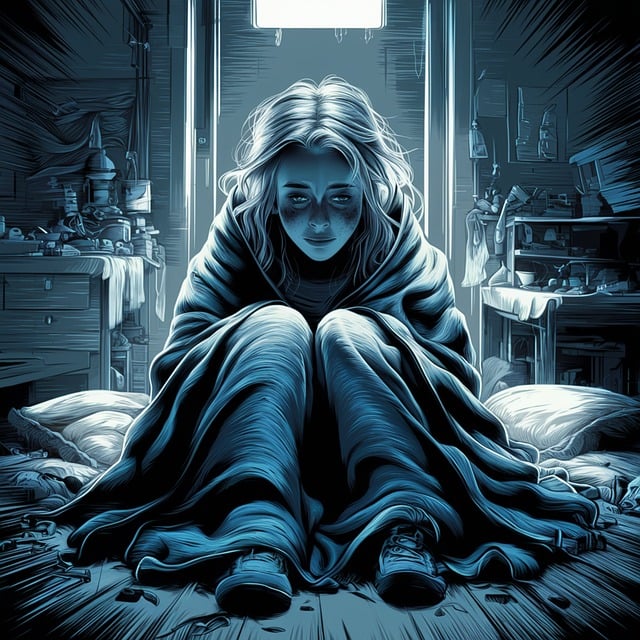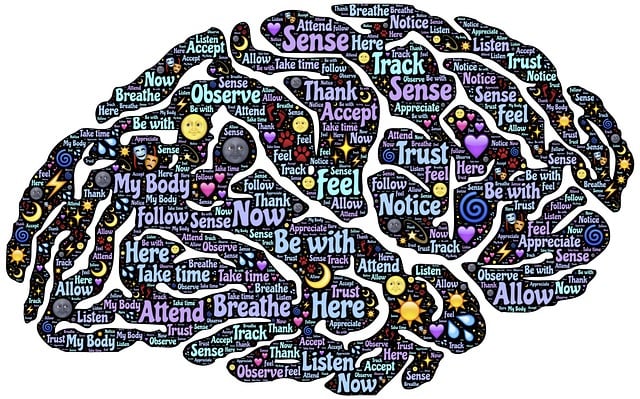Castle Rock Couples Counseling Therapy emphasizes cultural sensitivity as a cornerstone for effective mental healthcare. By recognizing and respecting diverse cultural backgrounds, therapists build trust, overcome communication barriers, and address historical trauma. This approach personalizes care, improves therapeutic outcomes, and embraces traditional healing methods. Therapists use strategies like self-education, cultural discussions, and mindfulness to navigate individual beliefs, ensuring an inclusive environment for couples from varied ethnic backgrounds. Continuous self-reflection ensures the therapy practice evolves to meet diverse needs.
In today’s diverse society, cultural sensitivity in mental healthcare is paramount. The article explores this crucial aspect, focusing on Castle Rock Couples Counseling Therapy, where understanding cross-cultural nuances can significantly impact treatment outcomes. We delve into the challenges and barriers faced in providing culturally sensitive care, offering practical strategies to enhance therapeutic interactions. By embracing these approaches, mental health professionals in Castle Rock can foster inclusive environments, ensuring effective support for couples from various backgrounds.
- Understanding Cultural Sensitivity in Mental Healthcare
- Challenges and Barriers in Cross-Cultural Counseling
- Strategies for Practicing Culturally Sensitive Castle Rock Couples Counseling Therapy
Understanding Cultural Sensitivity in Mental Healthcare

In the realm of mental healthcare, cultural sensitivity is a cornerstone that facilitates effective treatment and fosters trust between therapists and clients from diverse backgrounds. It involves recognizing and appreciating the unique values, beliefs, and practices of different cultures, ensuring that Castle Rock Couples Counseling Therapy services are tailored to meet individual needs. Understanding cultural nuances is vital in preventing burnout among therapists while promoting emotional well-being for all involved.
When practicing culturally sensitive counseling, therapists must be mindful of potential barriers created by language differences, societal norms, and historical trauma. By incorporating strategies for stress management and adaptive emotional well-being promotion techniques, therapists can create a safe space that encourages open communication. This approach not only enhances the therapeutic process but also ensures that clients from diverse communities receive personalized care, ultimately improving their mental health outcomes.
Challenges and Barriers in Cross-Cultural Counseling

In the realm of mental healthcare, cultural sensitivity is paramount to providing effective treatment, especially when dealing with diverse client backgrounds. One significant challenge in cross-cultural counseling is overcoming barriers that arise from differing life experiences and worldviews. For instance, Castle Rock Couples Counseling Therapy may face obstacles when addressing interpersonal dynamics shaped by unique cultural norms and values. The therapist must be adept at interpreting non-verbal cues, understanding implicit rules of communication, and appreciating the context in which a couple interacts, all while maintaining confidentiality.
Additionally, language differences can create significant hurdles in cross-cultural counseling. While interpretation services are available, they may not fully capture the nuances of personal narratives and emotions. To bridge this gap, therapists should encourage clients to engage in mental wellness journaling exercises as a means of self-expression and reflection. This practice, combined with guidance on cultural sensitivity, can foster deeper connections and improve outcomes for all involved, including those seeking stress reduction methods tailored to their specific backgrounds.
Strategies for Practicing Culturally Sensitive Castle Rock Couples Counseling Therapy

In the realm of Castle Rock Couples Counseling Therapy, cultural sensitivity is paramount to fostering an environment where all partners feel understood and heard. Therapists must be adept at navigating the intricate tapestry of personal beliefs, values, and backgrounds that shape each individual’s emotional intelligence. This involves proactive strategies such as educating oneself about diverse cultures, explicitly discussing cultural expectations early in therapy, and being mindful of non-verbal cues specific to each partner’s ethnic background. By integrating Mental Illness Stigma Reduction Efforts into sessions, therapists can create a safe space where couples openly discuss their experiences without fear of judgment, promoting honest communication crucial for effective mood management.
Embracing diverse cultural practices and perspectives empowers therapists to tailor their approaches, ensuring every couple receives personalized care. This might include incorporating traditional healing methods or acknowledging the influence of cultural norms on relationship dynamics. Through continuous self-reflection and adaptation, Castle Rock Couples Counseling Therapy can evolve to address the unique needs of each couple, ultimately enhancing therapeutic outcomes.
Cultural sensitivity is a cornerstone of effective Castle Rock Couples Counseling Therapy. By understanding and addressing the unique challenges and barriers that arise in cross-cultural counseling, therapists can create a more inclusive and supportive environment for diverse couples. Implementing strategies such as active listening, cultural competence training, and adaptation of therapeutic techniques fosters meaningful connections and enhances outcomes. Recognizing and embracing these approaches not only benefits individual clients but also enriches the broader mental healthcare landscape.










